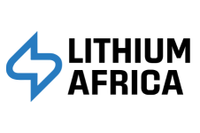Major Challenges in Store for LME Lithium Contract

INN talked to experts about the LME’s efforts to launch a lithium contract to bring price transparency to the sector.
Lithium prices have been a major topic of discussion since last year, with declines continuing after a period at the end of 2017 when market panic sent prices to a “crazy peak.”
Pricing in the lithium industry has always been opaque due to the dominance of a few major producers, with investors having very little pricing information they can trust.
Last week, the London Metal Exchange (LME) made headlines when it announced it is a step closer to launching a lithium futures contract by joining forces with price reporting agency Fastmarkets. The news came during Fastmarkets’ Lithium Supply & Markets Conference in Santiago, Chile.
The main premise of this contract is to bring price transparency to a sector that for years has been regarded as an oligopoly, with a handful of producers agreeing to contracts and setting prices.
Unsurprisingly, just a couple of hours after the news hit, three of the world’s top lithium producers, SQM (NYSE:SQM), Tianqi Lithium (SZSE:002466) and Albemarle (NYSE:ALB), said they are hesitant about the implementation of the LME’s contract, with US-based Albemarle declining to share pricing information and saying the exchange’s proposal goes against the company’s strategy.
Speaking with the Investing News Network on the sidelines of the show, William Adams, head of base metals and battery research at Fastmarkets, explained that electric vehicles (EVs) are the key reason a lithium contract is needed.
“By the time EVs become mainstream, the demand growth is going to be so strong that we’re going to need an awful lot of new production coming on, and anything that can help facilitate that I think is going to be a big positive,” he said.
Adams also believes that the lithium contract will help smooth the lithium supply chain, and will help junior miners and financiers with risk management.
But Adams sees challenges ahead as well, since lithium is a chemical despite having aspects that make it like a commodity.
“I think there will be the opportunity to find a benchmark or a proxy price, and then the different types of lithium will be traded at a premium or a discount to that,” he said. “But I think it will take a lot of consultation with the industry and with us and the LME. That will take some time to do.”
Reactions from industry experts after the LME’s announcement have been mixed, but most agree that the 142 year old exchange has a number of key challenges ahead.
“The industry has an evolution to go through before the introduction of a financial derivative can be useful to the market,” said Andrew Miller, Benchmark Mineral Intelligence’s head of price assessments. “We are still operating in an industry where there’s long-term contracts, there’s no formal spot market for lithium at the moment and there’s no accepted industry price.”
Miller added that the way to bring price transparency is through independent price collection. “A contract has the potential to bring transparency, but only if there’s liquidity on the contract — that is crucial.”
Benchmark Mineral Intelligence was also in the running to partner with the LME on the contract.
For SignumBox CEO and Founder Daniela Desormeaux, a lithium contract is a first step to bringing transparency into the market and having a benchmark — but it is not enough.
“It is not enough because there’s a huge challenge to have a representative price,” she added. In lithium there are many different types and specifications to consider when looking at pricing.
Similarly, Emily Hersh, managing partner at DCDB Group, said Fastmarkets has a big challenge ahead, but if the pricing agency takes this as a first step in a long journey of learning, it could be a great thing.
Aside from the current dynamics in the industry, another main challenge for the LME and Fastmarkets will be the adoption of a contract that has seen no support from major producers from the start.
“I am not sure this is good for the industry. I’ve not been supportive of this movement or believe that it is going to be a panacea or decrease the volatility we’ve seen in the market,” RK Equity Founder Howard Klein said. “Without the participation of the major producers, I am not sure how much traction it will get. I continue to advocate for a spodumene six contract instead.”
For Chris Berry of House Mountain Partners, transparency is positive in any sector, especially in pricing.
“Lithium has always been an oligopoly that has controlled price, but with demand reaching 1 million tonnes by 2025, that is starting to change with the new producers entering the market,” he said.
But will the lithium contract help? That will depend on what investors do, according to the expert.
“Will they embrace this contract? If the LME cobalt contract is any indication, I am not too optimistic,” Berry added. “Another thing you want to make sure to make the contract a success is pricing buy in from all the producers, and it doesn’t sound like Albemarle is going to be contributing.”
For Berry, investors should keep an eye on lithium prices from a directional perspective, and the contract will help with that.
Similarly, lithium expert Joe Lowry of Global Lithium said investors still lack clarity on lithium prices and indicators that could impact future prices. He thinks the LME’s initiative is positive for that aspect of the equation — but adoption of the LME benchmark for contracts is something that is unlikely to happen.
“Considering three out of the four big producers said they are not on the bus with the contract within hours of its announcement … you might be able to use that product for rate of change increases in lithium contracts … but I don’t think the product is going to be used to base their contracts on that.”
A date for the introduction of the contract, which was originally set for the fourth quarter of 2019, has not been confirmed yet. The exchange said it will continue to work with its advisory group and other industry participants to gauge the appropriate timing for launch.
“The LME continues to work with a supportive group of industry participants to develop solutions for the lithium industry, and will launch a contract when those participants are ready to use it,” spokeswoman Bianca Blake told Reuters.
Click here to watch our full Lithium Supply & Markets Conference playlist on YouTube.
Don’t forget to follow us @INN_Resource for real-time updates!
Securities Disclosure: I, Priscila Barrera, hold no direct investment interest in any company mentioned in this article.
Editorial Disclosure: The Investing News Network does not guarantee the accuracy or thoroughness of the information reported in the interviews it conducts. The opinions expressed in these interviews do not reflect the opinions of the Investing News Network and do not constitute investment advice. All readers are encouraged to perform their own due diligence.




